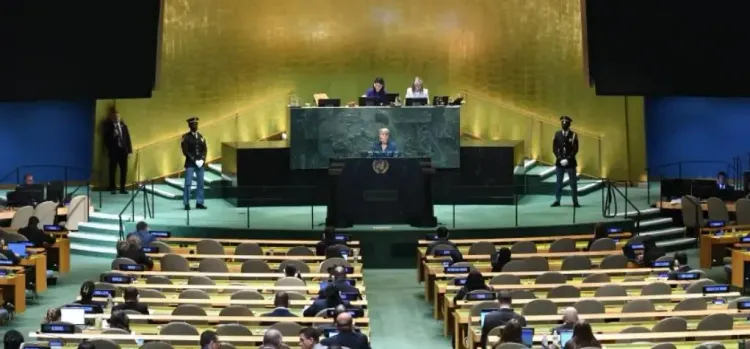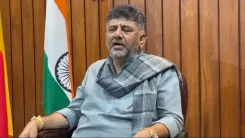What Happened at the UN High-Level Event on Climate Action?

Synopsis
Key Takeaways
- UN Secretary-General calls for new climate strategies by 2035.
- China and India have exceeded their renewable energy targets.
- COP30 in Brazil is critical for global climate action.
- Focus on methane and energy transition is essential.
- Urgent funding needed for developing nations.
United Nations, Sep 25 (NationPress) A significant high-level special event focused on climate action took place at the United Nations headquarters in New York.
During his opening remarks on Wednesday (local time), UN Secretary-General Antonio Guterres highlighted that thanks to the Paris Agreement, the forecasted global temperature increase over the last decade has been reduced from four degrees Celsius to below three, contingent on the full implementation of current nationally determined contributions (NDCs).
"We must now devise new strategies for 2035 that are more ambitious and expedite the pace of change," Guterres emphasized, advocating for significant reductions in emissions in line with the 1.5 degrees Celsius goal, encompassing all emissions and sectors, while promoting a fair global energy transition.
He noted that China achieved its 2030 wind and solar target six years sooner than anticipated, while India reached 50 percent of its electricity capacity from non-fossil fuels five years ahead of schedule.
Guterres urged that the upcoming COP30 in Brazil must result in a credible global action plan to keep us on track, identifying five critical areas: energy—despite the ongoing dominance of fossil fuels, the clean energy transition must be accelerated; methane—a highly potent greenhouse gas that requires drastic reductions this decade; forests—the destruction of our planet's major carbon sinks must cease; heavy industry—technological advancements are crucial for reducing emissions in sectors like steel, cement, and heavy transport; and climate justice.
He called for immediate measures to release funds for developing nations to harness clean energy opportunities and safeguard lives and economies, according to Xinhua news agency.
In light of the escalating climate crisis worldwide, the UN Secretary-General is convening this climate summit alongside the general debate of the UN General Assembly, aiming to provide a platform for global leaders to unveil their new national climate action strategies and capitalize on the emerging clean energy era.
By COP30, set for November in Belem, Brazil, all signatories of the Paris Agreement must present revised NDCs that embody bold actions for the coming decade.









